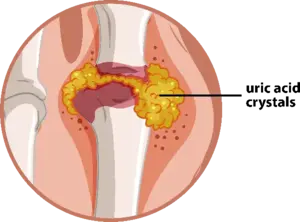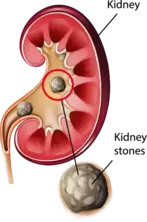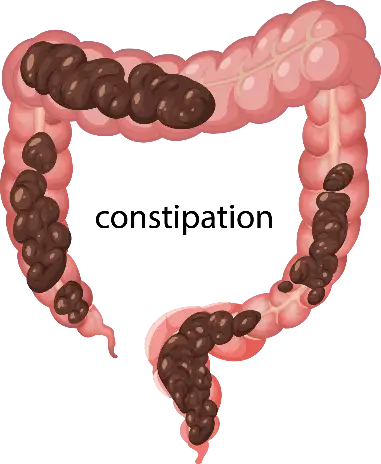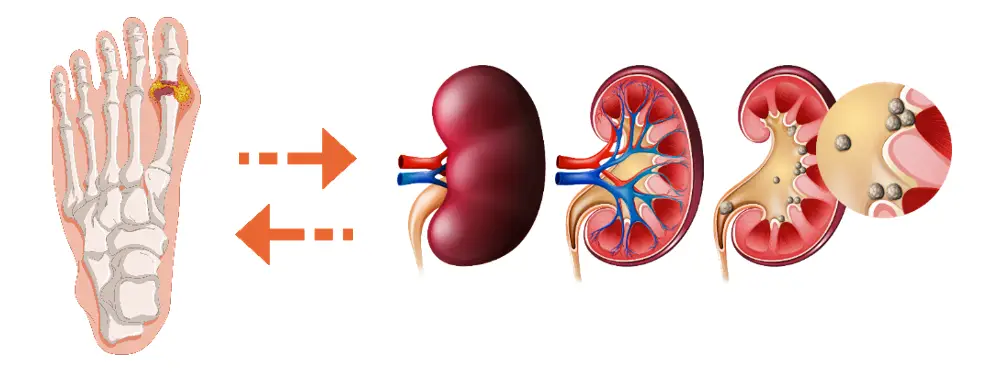


Gout berlaku apabila terdapat lebihan asid urik dalam darah, dikenali sebagai hiperurisemia. Asid urik adalah hasil sampingan daripada metabolisme purin yang terdapat dalam makanan seperti daging merah, makanan laut dan alkohol. Biasanya, badan akan melarut dan menyingkirkan asid urik melalui air kencing yang normal, tetapi lebihan asid urik boleh membentuk kristal. Kristal ini boleh terbentuk di dalam buah pinggang (menyebabkan batu karang) atau dalam sendi (menyebabkan gout). Pemeriksaan kesihatan berkala adalah penting untuk pencegahan, dan Hospital Pantai menawarkan perkhidmatan kesihatan yang disesuaikan mengikut keperluan anda.

Walaupun nampak tidak berkaitan, sembelit boleh memberi kesan kepada pembentukan batu karang dan kesihatan buah pinggang secara keseluruhan. Ia melambatkan proses penyingkiran sisa termasuk asid urik, sekali gus meningkatkan kepekatan dalam darah dan air kencing.
Bukan semua pesakit gout akan mengalami batu karang, tetapi faktor berikut meningkatkan risiko (Wang et al., 2022):

Pencegahan memerlukan gabungan pemakanan, ubat dan gaya hidup sihat. Hidrasi yang mencukupi sangat penting — minum 2–3 liter air sehari untuk mencairkan air kencing dan mengurangkan risiko pembentukan kristal asid urik. Diet rendah purin (hindari daging merah, makanan laut, dan alkohol) juga membantu mengurangkan risiko serangan gout dan batu karang ini.
Rawatan perubatan juga penting. Kalium sitrat dapat menjadikan air kencing lebih beralkali dan mengurangkan pembentukan batu asid urik. Ubat seperti allopurinol dan febuxostat pula menurunkan penghasilan asid urik, sesuai untuk pesakit hiperurisemia kronik. Rawatan ini perlu digabungkan dengan perubahan gaya hidup seperti mengekalkan berat badan ideal dan bersenam untuk menyokong kesihatan buah pinggang.
Jika berlaku serangan batu karang akut, gejala seperti sakit teruk, loya dan darah dalam air kencing perlu rawatan segera.
Batu kecil mungkin keluar sendiri dengan pengambilan air yang banyak, manakala batu besar mungkin memerlukan prosedur seperti litotripsi atau pembedahan. Pemantauan berkala dan langkah pencegahan amat penting untuk pesakit gout dan batu karang.
Jangan tunggu lagi — tempah pemeriksaan kesihatan anda di Pantai Hospital Batu Pahat sekarang. Anda juga boleh menjadualkan temu janji melalui laman web kami atau aplikasi My Health 360 di Google Play Store.
Perlukan rawatan khusus? Tempah temu janji dengan pakar Perubatan Dalaman kami untuk gout dan dapatkan nasihat pakar Nefrologi untuk batu karang. Kesihatan anda keutamaan kami — ambil langkah pertama hari ini! Hubungi kami di 07-433 8811 — kesihatan anda adalah keutamaan kami.
Hospital Pantai telah diiktiraf oleh Malaysian Society for Quality in Health (MSQH) atas komitmennya terhadap keselamatan pesakit dan kualiti perkhidmatan.


